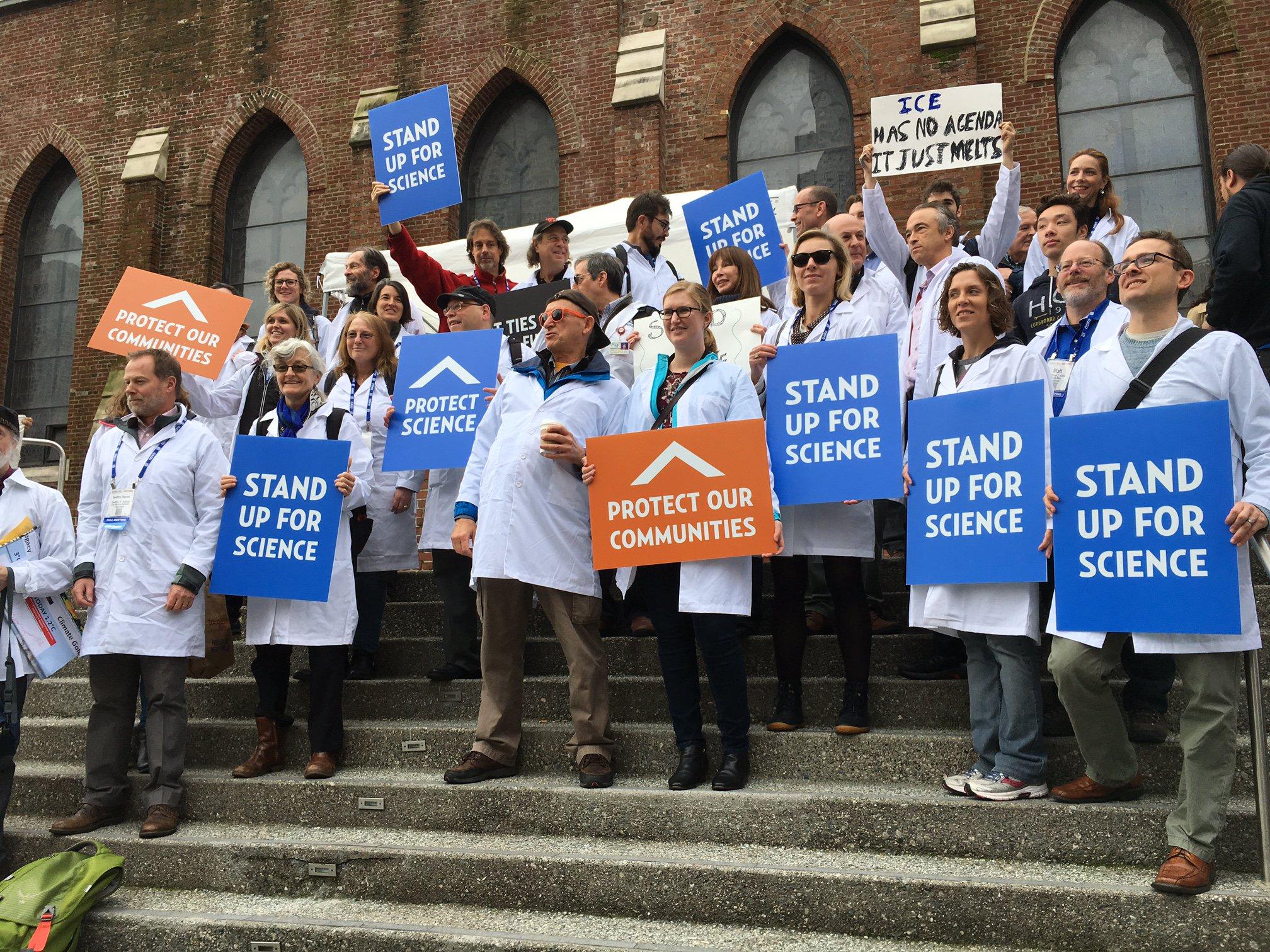Republican climate change deniers condemned as 'woefully ignorant' by scientists
'The wonderful thing about science is that it is not simply a matter of opinion'

It was a Star Chamber-style hearing in which Republican global warming-denier Lamar Smith used his position as chair of the US House of Representatives Science Committee to lambast climatologists for allegedly abandoning the scientific method.
The hearing, described as “insane” by one commentator, was the latest sign of the growing divide between scientists, evidence and reason, on one side, and ruling American politicians and ‘alternative facts’ on the other.
Donald Trump has bizarrely claimed global warming is a hoax perpetrated by China and the lawyer he chose to run the US Environmental Protection Agency, Scott Pruitt, recently disputed established science by saying carbon dioxide was not a significant contributor to climate change.
Such claims have prompted some scientists to suggest the US could become like Soviet Russia, where ideology was considered more important than reality. Two mass protests, the March for Science and the Climate March, will be held later this month in the US, UK and other countries.
Now, in an article for The Conservation website, two leading scientists have hit back at Mr Smith’s laughable suggestion that virtually every expert on climate science in the world operates “outside the principles of the scientific method”, motivated by a “personal agenda even if the evidence doesn’t support it”.
Kevin Trenberth, a distinguished senior scientist at the US National Centre for Atmospheric Research, and Professor Reto Knutti, of the world-leading ETH university in Zürich, wrote: “The kinds of statements made by Smith, the president and Pruitt are misguided. They show a woeful ignorance about science and how it works, and in particular about climate science.
“Consequently, they ignore sound advice on how to best plan for the future.
“The wonderful thing about science is that it is not simply a matter of opinion but that it is based upon evidence and physical principles, often pulled together in some form of ‘model’.”
Mr Smith claimed “alarmist predictions” about climate change were no more than “wild guesses” and it was “impossible” to predict “far into the future”. Anyone who claimed to know what the climate would be like at the end of the century, he said, was “not credible”.
He also stressed the scientific method required the results of research to be reproducible in order to provide “repeated validation”.
In their article, the scientists explained: “Science using observed data and models is transparent and reproducible.
“The data are in almost all cases public; the models are as well; and if we run the same code twice on a computer, we get exactly the same answer.
“Anyone can check the results, and many more people have in fact scrutinised the Intergovernmental Panel on Climate Change’s assessments and looked at the key conclusions than in other fields.
“The essential statements made several decades ago still hold, and projections made with early models were remarkably accurate. Recent reviews of past projections for temperature, precipitation and decades-length changes have confirmed earlier model projections.”
They stressed computer models of the Earth’s climate did not predict a certain future, but gave a range of possible outcomes. Models were also “not perfect and involve approximations”.
“But because of their complexity and sophistication, they are so much better than any ‘back-of-the envelope’ guesses, and the shortcomings and limitations are known,” the scientists wrote.
They compared the choices facing humanity over climate change to a decision about whether to board a plane with a “large crack in the wing”.
“When the stakes are high, then even a small probability for massive failure prevents us from doing certain things,” they wrote.
“Would you board the airplane? We do not need full certainty that the airplane will crash – or in the climate change context, we do not need full certainty that the impacts will be catastrophic – to justify some measures to mitigate the outcome, or find an alternative.
“In fact, what we need is very high probability that the airplane will not crash.
“Using this argument, we should not emit carbon dioxide unless we know for sure that it is not harmful. In complex problems like predicting the climate of the Earth, we will never have complete certainty, nor is it needed.
“The failure of Lamar Smith and his ilk to recognise that climate scientists ask legitimate scientific questions and, moreover, that they provide very useful information for decision-makers is a major loss for the public.”
Join our commenting forum
Join thought-provoking conversations, follow other Independent readers and see their replies
Comments